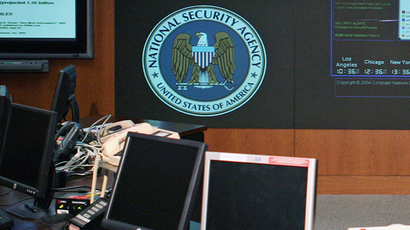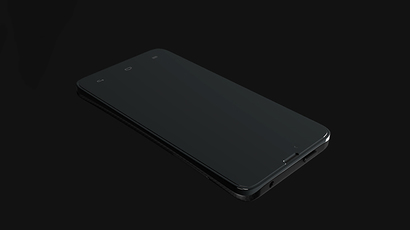Most Americans want NSA powers restricted – poll
The majority of Americans oppose keeping the NSA’s current surveillance programs the way they are, with 57 percent of respondents in a new poll saying they have “no confidence” that the government won’t abuse the collected data.
In the poll, published by Anzalone Liszt Grove Research on Thursday, 59 percent of respondents also said they totally opposed keeping the federal government's current surveillance programs in place without any changes, while nearly three-quarters support the creation of an independent advocate to help protect the public’s privacy. Almost two-thirds (63 percent) said that more oversight is needed over the federal government’s surveillance programs.
The poll, which questioned 803 adults in November on what they
thought about the bulk collection of data, summed up its findings
in a report entitled: “Americans Strongly Support Reining in
NSA Surveillance Programs.”
The biggest concern the NSA leaks have caused among the public is
that their personal data is easily accessible to government
workers. Seventy percent of respondents found it “very
concerning” that the NSA workers or contractors had access to
their personal financial information and their emails.
The anti-NSA feelings are, according to survey, even stronger in
among younger people, who appear to be particularly sensitive to
possible privacy violations.
“Americans under 50 are even more opposed to maintaining the
status quo when it comes to the NSA’s surveillance programs (63
percent oppose) than those over 50 (54 percent oppose),” the
pollster said in a statement.

The poll results were published a day before President Barack Obama was due to make a speech Friday in which he is expected to announce changes to some of the surveillance programs operated by the NSA.
Jesselyn Radack, a campaigner for government accountability, said
she does not believe that the anticipated changes will make a big
difference.
“So far what has been telecast through government leaks look
a lot like cosmetic changes. In other words, it does not appear
that the president will be reining in the largest controversy
which is probably the bulk collection of American data, nor will
he be adopting any recommendation to house and store that data in
for example a telephone company, rather than by the National
Security Agency,” Radack told RT.
US Democratic Congressman Rush Holt is more optimistic though –
he told RT about a bill that he proposed for capping the NSA
spying.
“[The bill] does several things. It grants whistleblower
protection to members of the intelligence community. It would
prevent the NSA or any similar agency from installing back doors
to hardware or software. The bill would also remove the
justification the NSA has invoked for seizing the metadata of
virtually everyone, saying “we will treat it with care, we won’t
abuse people’s civil liberties unless we suspect them. We don’t
want those who do the surveillance be the very same ones who
decide who the bad guys are.”
A presidential taskforce that had been reviewing
intelligence-gathering in the wake of Edward Snowden’s leaks on
bulk surveillance released a report in December, recommending
that President Obama consider 46 changes changing the way the NSA
and other US intelligence services operate.














